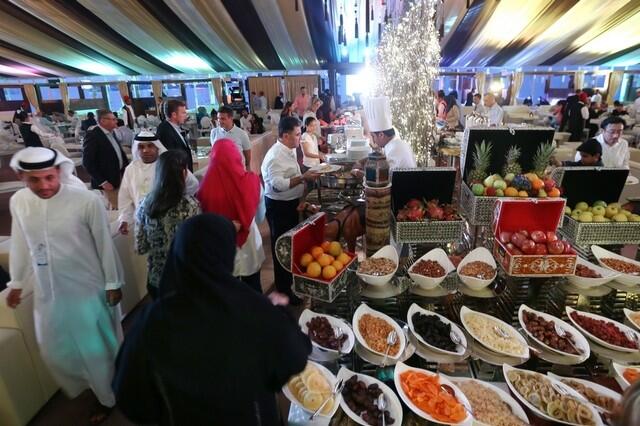Increased food production during Ramadan in Dubai is fuelling a daily 33 per cent spike in food waste going to the landfill, said a senior Dubai official.
A growing biodegradable waste stream is bad for the environment, said Ivano Ianelli, CEO of Dubai Carbon.
Demand for meat and other foods to feed iftar and suhour gatherings doubles during Ramadan, Ianelli said, leading to more food waste which. as it decomposes, releases methane gas that is 25 times more harmful to the atmosphere than carbon monoxide.
“An average person in Europe generates around 1.2kg of waste a day, which is less than half the per capita waste generation of 2.7kg per day in the UAE. However, this (waste generation in the UAE) doubles to 5.4kg a day during Ramadan, which is the amount of waste we generate to be hospitable to our guests. Clearly this is something that needs to be addressed, and Ramadan seems to be the perfect time for that,” said Ianelli.
Awareness campaign
To combat the growing tide of waste, Ianelli said Dubai Carbon has launched a campaign to generate awareness in the emirate and to encourage everyone to conserve food and reduce their carbon footprint as much as possible to reduce the daily waste stream from homes, hotels and restaurants.
Dubai Carbon is encouraging all residents and visitors to share their stories on its social media pages with hashtags #CarbonFOODprint, #kNOwWaste, and #ThinkEatSave. Ianelli said the agency is also working closely with eateries and hotels in Dubai to collate information on daily food production and waste to give hard data that will help authorities sketch out the size and depth of the methane threat during Ramadan.
The campaign is part of the Dubai Carbon Abatement Strategy 2021, approved in December by the Dubai Executive Council, to stem greenhouse gases by 16 per cent by 2021.
Results of the strategy will be monitored over the next five years to gauge gains made to cut emissions and are in keeping with the Conference of Parties (COP21) (Paris climate summit) decision by nearly 200 countries to limit global temperature increases to below 2 degree Celsius by the turn of the century.
For its part, the UAE’s Intended Nationally Determined Contribution aims at limiting emissions and increasing the share of clean energy in the energy mix to 24 per cent by 2021, up from 0.2 per cent in 2014.
The strategy includes real initiatives that will reduce emissions going into the air, Ianelli said, such as 100 new electric car charging stations across Dubai, new solar and renewable energy production projects, encouraging energy users to cut their consumption and, waste management measures to reduce garbage going to landfills.
Food-saving tips
- Plan meals ahead with shopping lists to avoid impulse buys to reduce waste
- Share leftover food with family, friends, neighbours or deliver excessive food to less fortunate people
- Home composting can potentially divert up to 150kg of food waste per household per year from local collection authorities.
Source: Dubai Carbon











